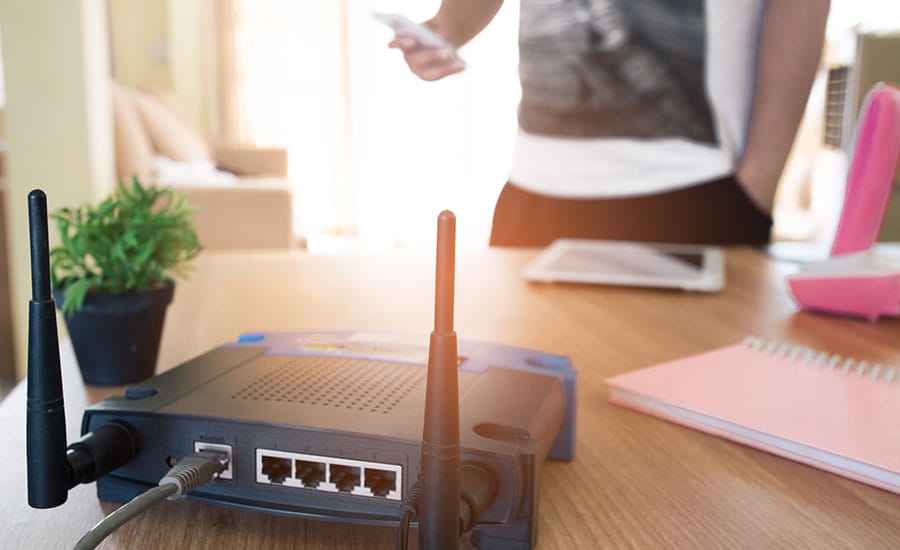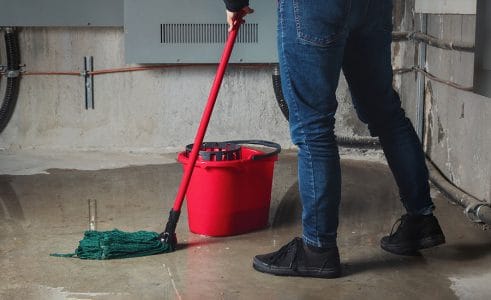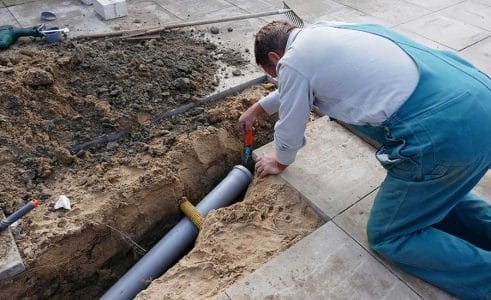Why Your Fire Alarm Beeps Randomly at Night and How To Fix It
A beeping fire alarm or smoke detector can disrupt your day — or your sleep — but it’s more than just an annoyance.
These devices are your home’s first line of defense, designed to alert you to danger or signal an issue that needs attention.
According to the National Fire Protection Association (NFPA), three out of five home fire deaths occur in properties without working smoke alarms, highlighting the importance of keeping them in peak condition.
Today, we’ll walk you through why your fire alarm beeps randomly at night, cover common beep causes and explain how to troubleshoot a fire alarm.
Why Do Fire Alarms Beep Randomly at Night?
Common reasons why fire alarms beep randomly at night include low batteries, dust buildup, or environmental factors like humidity or temperature changes.
These devices are designed to alert you to problems promptly, ensuring your safety by encouraging immediate action to maintain their functionality.
Common Causes of Fire Alarm Randomly Going Off
Smoke detectors are your home’s first line of defense against fire damage, but random beeping can be disruptive and puzzling.
Understanding the common causes can help you respond to an emergency faster, troubleshoot effectively and maintain your safety system’s reliability.
1. Low Battery Warning: The Most Common Cause
A low battery is the most frequent reason smoke detectors beep randomly. These devices are programmed to emit a short chirp every 30 to 60 seconds when the battery is running low.
This ensures you’re alerted to replace the battery before the detector stops functioning entirely.
Tip: Regularly checking and replacing batteries at least once a year can prevent these interruptions.
2. Accumulation of Dust or Debris in the Detector
Over time, dust, insects, and debris can gather inside the detector, interfering with its sensors. This accumulation can trigger random beeping or even false alarms.
Tip: Cleaning your smoke detector gently with compressed air or a soft brush every few months can help prevent this issue.
Be sure to follow the manufacturer’s guidelines for maintenance to avoid damaging sensitive components.
3. Humidity and Temperature Fluctuations
Environmental factors like high humidity or rapid temperature changes can cause smoke detectors to beep unexpectedly.
For example:
- Steam from showers or cooking can mimic smoke particles
- Extreme cold or heat may affect battery performance or sensor functionality
Tip: To minimize false alarms, avoid installing smoke detectors near bathrooms, kitchens, or poorly insulated areas prone to temperature swings.
4. Malfunctioning Sensors or End of Lifespan Signals
Smoke detectors don’t last forever and have a limited lifespan, typically 7 to 10 years. As they near the end of their service life, many models emit intermittent beeps to indicate it’s time for replacement.
Additionally, faulty sensors — whether from age or manufacturing defects — can lead to random beeping.
Tip: Check the device’s manufacturing date (usually printed on the back) to see it’s still within its functional range.
5. Interference From Nearby Devices or Wiring Issues
For hardwired smoke detectors, random beeping may result from electrical interference, loose connections, or power fluctuations.
Wireless devices, such as Wi-Fi routers or baby monitors, can also disrupt the detector’s signal, causing unexpected beeping.
Tip: To prevent interference, ensure smoke detectors are properly installed and positioned away from electronic devices that could disrupt their signal.

Step-by-Step Guide To Troubleshooting Fire Alarm Beeps
When your fire alarm starts beeping, identifying and addressing the issue promptly provides safety and peace of mind.
Follow these steps to troubleshoot beeping:
Step 1: Identify the Source of the Beeping
The first step is to confirm which device is beeping. In homes with multiple smoke detectors or interconnected alarms, it may be difficult to pinpoint the source.
Listen closely for the sound and check each device systematically.
IMPORTANT: Carbon monoxide detectors can also emit similar warning sounds, so verify the type of alarm before proceeding.
Step 2: Check and Replace Batteries
Low batteries are the most common cause of random beeping. Open the device and check the battery compartment.
Replace the old batteries with fresh ones, ensuring they are installed correctly. After replacing the batteries, allow a few minutes for the detector to reset.
A steady green light or absence of beeping typically indicates the issue is resolved.
Step 3: Inspect and Clean the Detector
Dust, dirt, or insects can interfere with the detector’s sensors, triggering false alarms or random beeping. Carefully remove the device and clean it using a soft brush or compressed air.
Pay special attention to vents and openings where debris may accumulate. Regular cleaning not only resolves beeping but also extends the life of your fire alarm.
Step 4: Test the Detector After Resetting
After cleaning and replacing batteries, test the detector to see if its functioning correctly. Press and hold the test button until you hear the alarm.
If the beep is steady and loud, the device is working as intended. If the random beeping continues, proceed to the next step.
Step 5: Call a Professional if the Beeping Persists
If your fire alarm continues to beep after troubleshooting, it may indicate a deeper issue, such as sensor malfunction or wiring problems.
In this case, it’s best to call a professional technician to inspect and resolve the problem.
Timely emergency response and professional assistance ensures your alarm system is reliable and provides peace of mind.

How To Turn Off a Fire Alarm or Smoke Detector
A fire alarm or smoke detector is a vital safety device, but there are times when it may need to be turned off temporarily — such as during a false alarm or while addressing a malfunction.
It’s important to do this safely and responsibly so your system remains operational when you need it most.
Follow these steps to silence your alarm safely:
- Identify the type of alarm: Determine whether your alarm is battery-operated, hardwired, or part of an interconnected system. This distinction helps you understand how to disable it correctly and avoid affecting other units in the system.
- Press the silence or reset button: Most alarms come equipped with a “silence” or “reset” button. Locate this button — often on the front or side of the device — and press it firmly. This action usually stops the beeping temporarily while you address the cause, such as replacing a battery or cleaning the unit.
- Address the underlying cause: After silencing the alarm, take immediate steps to identify and resolve the issue. First, replace any low batteries and clean the unit to remove dust or debris. Next, check for potential false triggers, such as steam or humidity.
Schedule a Professional Fire Alarm Inspection and Upgrade With BELFOR
At BELFOR, we understand the important role fire alarms and smoke detectors play in safeguarding your home and loved ones.
With decades of expertise and a commitment to excellence, our team makes sure your fire safety systems are in top condition.
Whether you need a routine inspection, help troubleshooting persistent issues, or an upgrade to a more advanced system, BELFOR is here to make the process seamless and stress-free.
When you partner with us, you can expect:
- Expert evaluations: Our trained professionals assess your fire alarm system to identify potential issues and align compliance with the latest safety standards.
- Advanced upgrades: We help you choose and install modern fire alarm solutions tailored to your home’s needs, enhancing safety and reliability.
- Comprehensive support: From inspections and testing to maintenance and repairs, we provide full-service care for your fire safety systems.
- Trusted experience: With over 70 years of industry leadership, BELFOR delivers unmatched expertise you can rely on.
- Immediate activation: One call to our 24-hour hotline connects you to rapid emergency support, with a team on-site in as little as four hours.
Protect what matters most. Schedule your professional fire alarm inspection or upgrade with BELFOR today. Your safety is our priority, and we’re here and ready to help.
.jpg)


